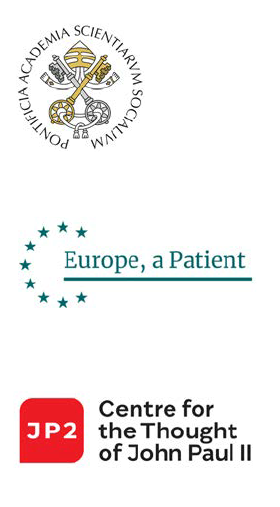
Facing European crisis
The COVID-19 pandemic uncovered a crisis or rather a set of interconnected crises: public health crisis, human rights and migration crisis, political legitimacy crisis, inequality crisis, environmental crisis. These crises are themselves rooted “in a profound crisis of values”, corroding the social fabric of Europe as well as its basic solidarity with other, especially less privileged, continents and nations. What Pope John Paul II wrote twenty years ago stands even truer for Europe today, confronted with the global pandemic: “While possessed of increased resources, it [Europe] gives the impression of lacking the energy needed to sustain a common project and to give its citizens new reasons for hope”.
During the pandemic, many decision-makers refrained from solving the crisis or even denied its very existence. This led to disastrous consequences: excessive death rates, comparable with those caused by wars; compromised health of many survivors; isolation, within families and nations, of the elderly, the poor, the less resilient and the most vulnerable. Such an approach constitutes a precedent with disastrous consequences for the near future, endangered by an exacerbated climate breakdown, the migration crisis, the lack of intergenerational solidarity and intensified competitiveness over shrinking resources.
For culture of life, solidarity and healing
If Europe is to survive, these crises need to be countered with a movement to build a culture of life, solidarity and healing. Healing “patient” Europe cannot be achieved with unrealistic optimism, believing that the problems will eventually solve themselves, nor with fatalism, abdicating from our responsibility to prevent them from happening. It requires a realistic confrontation with the present state of affairs – and informed solutions.
That is why the role of experts, decision-makers and leaders is to come up with effective measures which would ensure that any future pandemics are prevented and that the recovery provides a sound basis for sustainable and just development. We shall approach these fundamental, interconnected priorities in five panels.
Conference Panels
1
Panel I
From a culture of death to an imagination of mercy: Human rights in the age of pandemics, migrations and climate breakdown
2
Panel II
Rebuilding trust by helping citizens directly?
Healing the European legitimation crisis
3
Panel III
Dignity of work, participation in community, care for creation: A real Green Deal
4
Panel IV
Why does the world need an accessible vaccine and accessible health care?
Europe, Zero COVID and global public health
5
Panel V
What responsibility do political leaders have for healing “patient” Europe?

An age of rapid change can bring with it a loss of identity, especially when there is a lack of shared values on which to base society. To Europe, then, I would like to say: you, who for centuries have been a seedbed of high ideals and now seem to be losing your élan, do not be content to regard your past as an album of memories. In time, even the most beautiful memories fade and are gradually forgotten. Sooner or later, we realize that we ourselves have changed; we find ourselves weary and listless in the present and possessed of little hope as we look to the future.
Without ideals, we find ourselves weak and divided, more prone to complain and to be attracted by those who make complaint and division a style of personal, social and political life.
Europe, find yourself! Rediscover your most deeply-rooted ideals. Be yourself! Do not be afraid of your millenary history, which is a window open to the future more than the past. Do not be afraid of that thirst of yours for truth, which, from the days of ancient Greece, has spread throughout the world and brought to light the deepest questions of every human being. Do not be afraid of the thirst for justice that developed from Roman law and in time became respect for all human beings and their rights. Do not be afraid of your thirst for eternity, enriched by the encounter with the Judeo-Christian tradition reflected in your patrimony of faith, art and culture.
